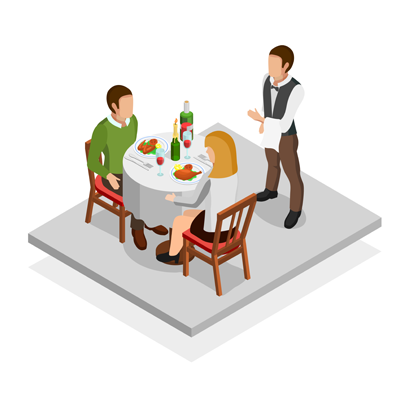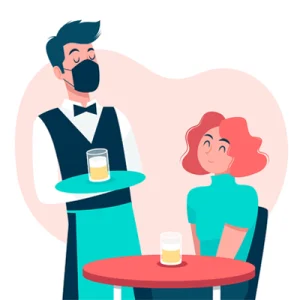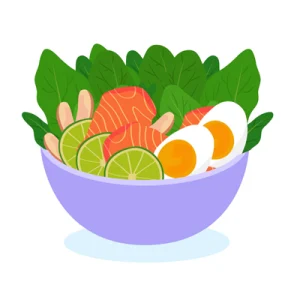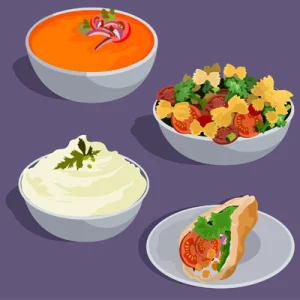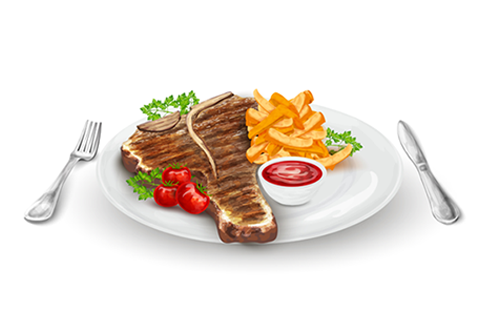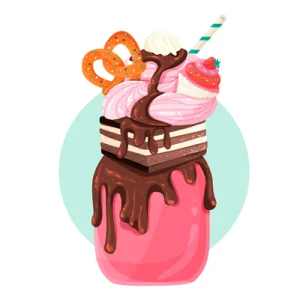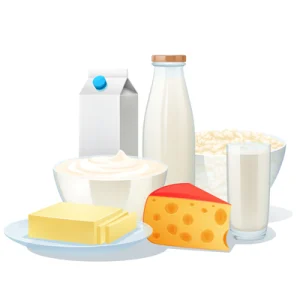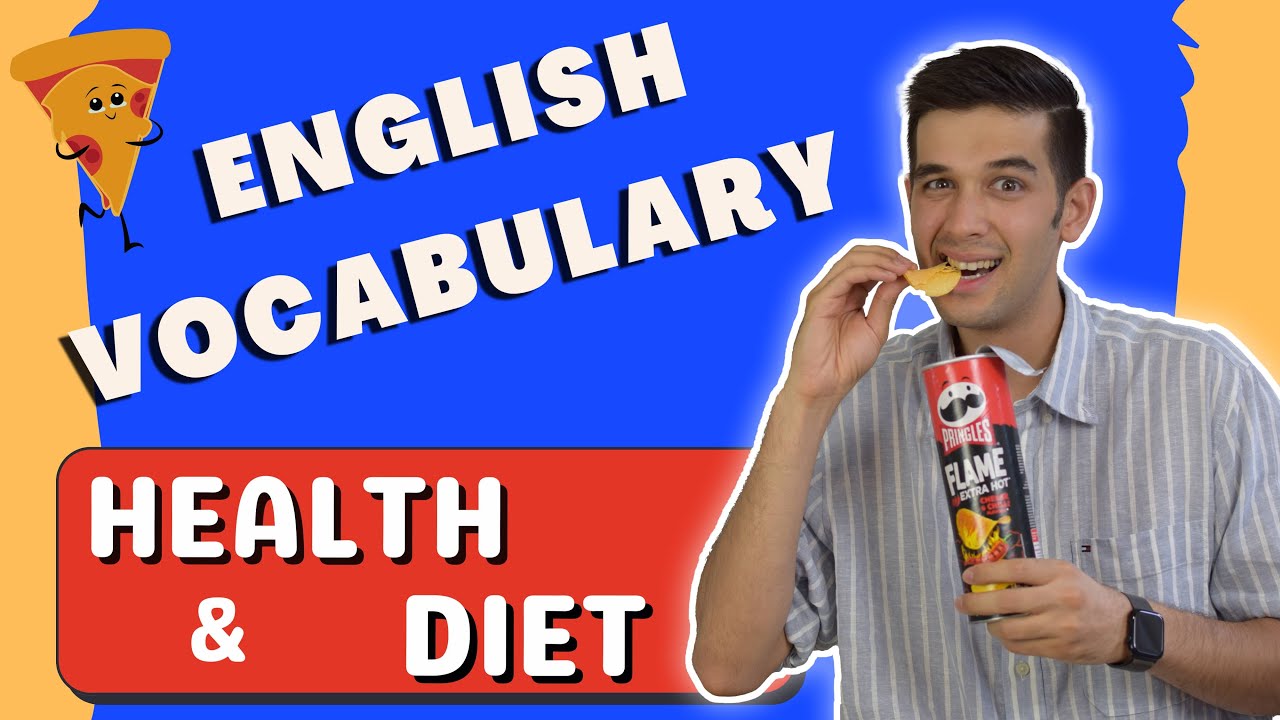One of the most effective ways for learning English, for some reason, is to practice it in specific situations, such as a hotel, library, or restaurant. Firstly, we will definitely experience such situations in the future when we immigrate or to a country where people speak English for work. Secondly, when we learn English in this way we immediately put the new words and grammar into practice which is similar to reality. In this article, we are going to some practical English restaurant vocabulary.
First, let’s learn some verbs and vocabulary which are useful when we want to plan to go to a restaurant.
How to speak English in a restaurant?
Pay attention to the following English restaurant vocabulary:
To dine out:
Meaning: To eat dinner in a restaurant.
A party (Of English restaurant vocabulary)
Meaning: A group of people who go to a restaurant to have dinner together.
To book / to make a reservation:
Meaning: to reserve a place/table earlier in a restaurant.
A: I would like to make a dinner reservation/ book a table for two.
B: We will have a table for you.
Reasonably priced:
Meaning: Having a good price, not so high or low.
Example: All the foods in that traditional restaurant are reasonably priced.
Attentive staff:
Meaning: workers who behave very well with costumers.
Example: I am a lucky manager because I have attentive staff.
local cousins (Of English restaurant vocabulary)
Meaning: The kind of food that belongs to the community that the restaurant located.
Example: The local cuisine of that traditional restaurant is amazing.
Continental food:
This word is also in the list of English restaurant vocabulary, which means:
The kind of food that belongs to Mediterranean regions encompassing France and Italy.
vegetarian food:
Meaning: meal plan made up of foods that come mostly from plants.
Learn more: English airport vocabulary
Watch this short video
Now, it’s time to put these new words into practice:
First scene
A: Guys! Would you like to dine out this weekend?
B: Great idea! I am free on Saturday. How about you John?
C: I try my best to come.
B: Nice. Do you know somewhere to go to?
A: Yes. I thought about it. I know a newly opened restaurant. It is located two streets away from here. The foods are lovely. It is reasonably priced and offers a huge range of foods, local cousins, vegetarian foods, and even continental food.
C: wow! It’s great. I will definitely come.
A: But it becomes so crowded at the weekend. We should make a reservation right now.
B: So, what are we waiting for? Let’s do it.
Read more: Learn how to describe your house in English
Watch this video
However, there are some words and expressions you should know when you enter a restaurant
Menu (Of English restaurant vocabulary):
Meaning: A printed list of meals that a restaurant serves.
Example: Could we have the menu?
Meaning: A list of soft drinks and alcoholic drinks that you can choose from. Some restaurants may also have a wine menu.
Example: The drink menu includes a wide range of juice as well.
Today’s special/specials:
Meaning: extra dishes cooked on the day, which are not on the main menu.
Example: Our today’s special is delicious Chinese food.
Starter:
Starter is also in the list of English restaurant vocabulary which means:
The first course of the meal. Small portions of food, served either hot or cold. You might decide to skip this course if you are not very hungry.
Example: What would you like to have for a starter?
Main course:
Meaning: The main part of the meal.
Example: The main course contains a lot of meat and chicken.
Dessert (Of English restaurant vocabulary):
Meaning: The last course of a meal. Typically, a sweet dish, such as cake, pudding, or ice cream.
Example: Would you like cake or ice cream for dessert?
Learn more: What are the phrases about relationships in English?
Succulent:
Meaning: Tender, juicy, and tasty.
Example: The steak is so succulent.
Dairy products (Of English restaurant vocabulary):
Meaning: Milk, yogurt, cheese, fortified soy milk, and yogurt.
Example: I am allergic to dairy products.
Learn more: newspaper vocabulary words list
Watch this short video
Learn more: How to use food vocabulary in our conversations?
Let’s see how we can use these new words in a natural conversation in a restaurant:
Second scene
Thomas: I booked a table for three for 7 pm under the name of Thomas Shelby!
Waiter/waitress: Of course. Please come this way.
Thomas: Sorry. Could we have the menu?
Waiter/waitress: Of course. It could be found on the table.
Thomas: Thanks
A few minutes later
Waiter: Can I take your order, Sir? What do you want for the main course?
Thomas: Yes. Two fried chicken and a pizza, please. Oh sorry! A steak. Two fried chicken and a steak.
Waiter: What would you like for a starter?
Thomas: A chicken salad.
Waiter: Anything to drink?
John: A soda, apple juice, and red wine.
Waiter: Do you want a dessert?
Thomas: Yes, can I see the dessert menu, please?
Waiter: yes. Here you are.
Thomas: mmmm. A cheesecake and two ice cream.
Waiter: anything else?
Thomas: That’s all, thank you.
After a few minutes
John: This steak is succulent (embarrassing)
Thomas: I know John. I have tried it before. But would you please stop wolfing down? (refer to the video of daily phrasal verbs) Everyone is looking at our table.
John to the waiter: May I have some water, please?
After you have eaten your meal you might want to express your opinion about it. To do that you can use these sentences.
After the dinner
Jack: What a wonderful dinner!
John: I especially like the wonderful steak. Thank you, Thomas, for your wonderful suggestion
When the dinner is finished and you want to pay the bill. You go to the cashier and a conversation like the following one might happen.
Thomas: Can I have the check, please?
Cashier: Of course. Here you are.
Thomas: Thank you. I am ready to pay the bill.
Cashier: Of course, Sir. How would you like to pay, cash or card?
Thomas: By cash, please.
Cashier: That will be $80, please.
Thomas: Here you are.
Cashier: Thank you. Here’s your change and your receipt.
Thomas: Thank you
Watch this short video
In this lesson, you got familiar with the English restaurant vocabulary list. It’s so important for each of us to improve our English vocabulary and level up our speaking, reading, writing, and listening skills to be able to speak like native speakers. If you want to take your English to the next level, take our online English learning course.
